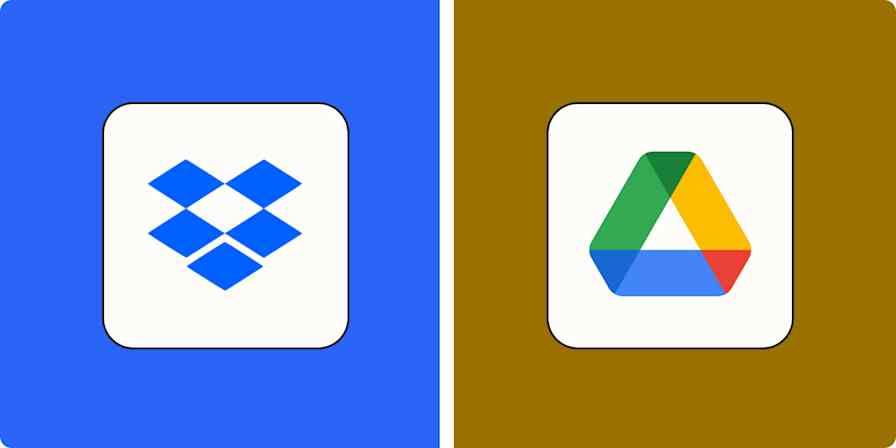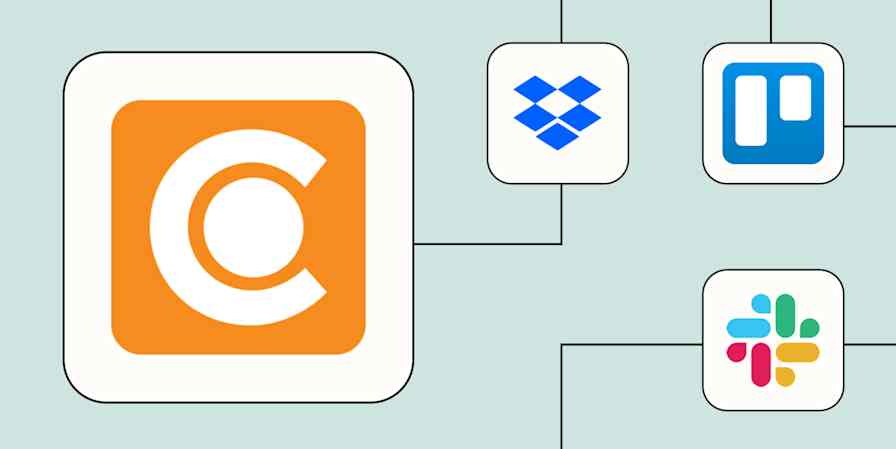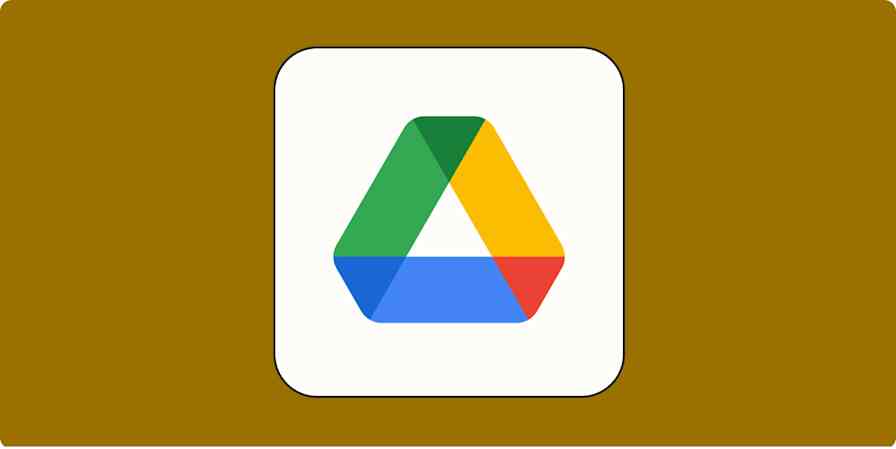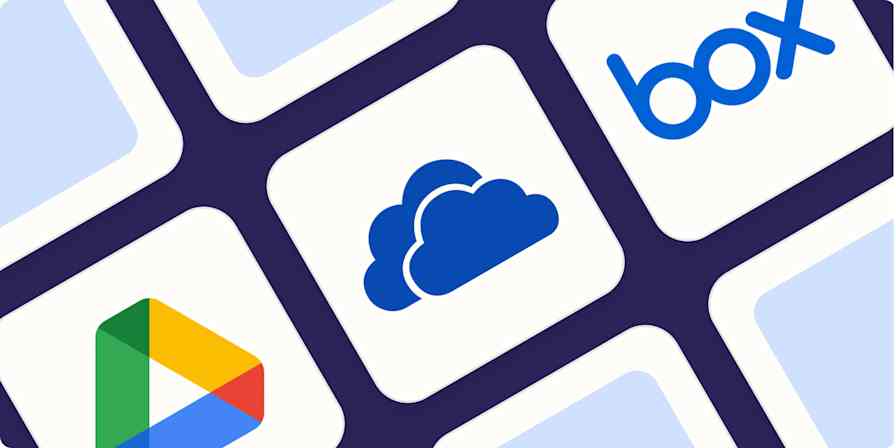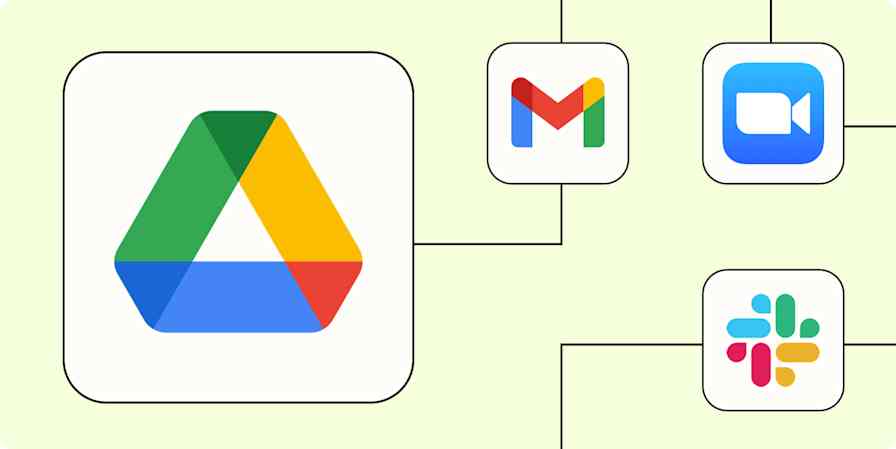Phone storage maxed out? Need to back up your computer? Want access to all your files across devices? Does your hard drive look like the digital equivalent of living in your car, files stuffed under the seats, and you're sure that important document is somewhere? For all these situations, you need cloud storage (or maybe a life coach).
But which of the billion cloud storage apps is right for you? The best comes down to a lot more than price or terabytes.
Do you need HIPAA compliance? Photo auto-backup and organization? Online media streaming? Remote work collaboration? Unlimited storage to keep a backup of your backup's backup? (Three cheers for redundancy!)
I've been updating this article for a few years now. This time I spent weeks testing dozens of old and new cloud storage options. Whether it's your first time ditching diskettes or you're already accumulating in the cumulus, you'll know which cloud storage app is right for you after reading this.
The best cloud storage apps
Google Drive for Google Workspace users and small businesses
iCloud for Apple users
Dropbox for remote teams
OneDrive for Windows and Microsoft 365 users
Box for enterprise businesses
Jottacloud for unlimited storage
Koofr for managing multiple storage providers in one app
pCloud for media storage and video streaming
IDrive for effortless backups
Proton Drive for a complete privacy ecosystem
TeraBox for the most free storage
What makes the best cloud storage app?
How we evaluate and test apps
Our best apps roundups are written by humans who've spent much of their careers using, testing, and writing about software. Unless explicitly stated, we spend dozens of hours researching and testing apps, using each app as it's intended to be used and evaluating it against the criteria we set for the category. We're never paid for placement in our articles from any app or for links to any site—we value the trust readers put in us to offer authentic evaluations of the categories and apps we review. For more details on our process, read the full rundown of how we select apps to feature on the Zapier blog.
Based on decades of digitally storing my work and life stuff and using many different apps to do so, these five features are what I think matter most for good cloud storage software:
Amount of storage. More = better, yes. But there's more to it than that, including monthly transfer or file size limits and the types of files you're allowed to store.
Competitive pricing. Cheap isn't always cheap. It's tempting to go with the app offering the most TBs for the least dollars, but why pay for more storage than you need when you could be getting features that save time instead?
Offline and multi-device access. You have to be able to access your stuff when and where you want it, on all your devices in all locations—from the loo to lost in the woods.
Organization tools. The best cloud storage tools make it easy to sort, filter, search for, and organize your files and folders.
Security and reliability. You have to keep those banking passwords, social security numbers, and crypto wallet codes secure, right? Just kidding: please don't keep those in cloud storage. For most people, security is their top concern, and for good reason: your stuff is your stuff, and you want to keep it that way.
Is there one cloud storage platform to rule them all? No.
As a freelancer, I need secure storage and backup for all my work and an easy way to pick up where I left off on any device when a new pun strikes. And as a mom and pet owner, I need nearly unlimited storage for the hundreds of daily photos of my dog.
I've tried my fair share of cloud storage services over the years, and to write this article, I tested dozens more that I'd never heard of before. Besides judging each of them against the five features above, I'm using my decades of experience storing my stuff in everything from chunked FTP uploads to the world's first consumer cloud storage app to evaluate what each of these apps does best.
The best cloud storage apps at a glance
Best for | Standout feature | Pricing | |
|---|---|---|---|
Google users and small businesses | Choose which folders to sync to computer or store in cloud to save space, plus Docs, Slides, Sheets | 15GB free, $1.99/month for 100GB, $2.99/month for 200GB, $9.99/month for 2TB | |
Apple users | Seamlessly built in to Apple devices | 5GB free, ranging from $0.99/month for 50GB to $59.99/month for 12TB (prices vary based on location) | |
Microsoft 365 and Windows users | Integration with Microsoft Office 365, but available for all platforms too | 5GB for free, $1.99/month for 100GB, $9.99 for 1TB, $12.99 for 6TB (shared between 6 users, 1TB each) | |
Remote teams | AI-powered meeting scheduling for remote teams | 2GB for free, $11.99/month for 2TB, $19.99/month for 3TB | |
Enterprise businesses | All of the security and compliance protocols in place | 10GB for free (for individuals); for businesses, from $7/user/month for 100GB or from $15/user/month for unlimited storage | |
Unlimited storage | Actually unlimited storage | 5GB for free, $6.99/month for 1TB shared across 5 users; $11.99/month for unlimited storage for 1 user | |
Managing multiple cloud storage providers in one place | Only pay for the storage you need | 10GB for free, additional storage ranging from €0.50/month for 10GB to €120/month for 20TB | |
Media storage and online streaming | Do-it-all storage and syncing from auto-backup to media streaming for all devices | 10GB for free, monthly plans from $4.99/month for 500GB to $19.99/month for 10TB, or lifetime plans up to $1,190 for 10TB | |
Microsoft 365 alternative (storage and office apps all-in-one) | Automatically backs up all devices, including mobile and NAS drives | 10GB for free, ranging from $9.95/month for 5TB to $99.95/month for 100TB (other options available if you pay annually) | |
Complete online privacy ecosystem | Secure cloud storage, VPN, encrypted email and calendar with Swiss law privacy protection | 5GB for free, $4.99/month for 200GB, $12.99/month for 500GB (with VPN, Mail, Calendar), $19.99/month for 1TB, $29.99/month for 3TB and up to 3 users | |
Most free storage (and cheapest subscription) | Best-in-class 1TB for free | 1TB for free, $3.49/month for 2TB; can purchase extra space ($19.99/year for 1TB, $59.99/year for 3TB, $99.99/year for 5TB) |
The best cloud storage app for Google Workspace users and small businesses
Google Drive (Windows, Mac, iOS, Android, Web)

Google Drive pros:
Free up device storage by keeping specific files cloud-only while still having online access
Reliable automatic photo backup with Google Photos
Google Drive cons:
It's your only choice for working with Google Docs, Sheets, Slides files
If you're choosing Google for cloud storage, there are two options:
Google One for individuals, which includes storage for photos, files, and Gmail.
Google Workspace for businesses, which includes custom domain email addresses, security features, and other features depending on plan tier, like document signing and more.
You can use Google-only services like Docs, Sheets, and Slides with either plan, but you have to keep those files in Google Drive. Meaning, if you use Google Docs etcetera already, you should probably just use Google Drive for all your cloud storage.
Google Drive works well across all platforms, including when it comes to optimizing your device's storage space. You can choose to "stream" or "mirror" your files. Streaming means you need to be online to view them, but they don't take up any space on your device. Mirroring means your files live on both your computer and the cloud, so you can access them anytime, even offline, and they sync when you're online. I mix the two: choosing streaming for large folders I don't need often, and mirroring for things I want to be able to access anytime.
I've found the additional features of Google Workspace well worth it, especially for hassle-free business email powered by Gmail. Something else I appreciate as a business owner is the ability to connect third-party apps to Google Drive cloud storage, unlike its main rival iCloud. I can back up work from my network-attached storage (NAS) drives automatically to Google Drive using Synology Cloud Sync, providing extra peace of mind.
I keep using Google Drive because it's necessary for my work documents, easy to use, and an effortless—though not the most cost-efficient—way to back up my NAS drives. (More on this later.) For most people, Google Drive ticks all the boxes.
You can also connect Google Drive to thousands of different apps with Zapier. I can't live without my Google Drive → Todoist workflow. I manage all my tasks in Todoist, and each client project gets a Google Drive folder. My Zap automatically creates a new Todoist task when I add a new Drive folder, ensuring I never miss a deadline. You can make Zaps for just about anything. Learn how to automate with Google Drive, or dive into these popular Google Drive Zaps.
Google Drive pricing: Get 15GB for free. Cloud storage alone: $1.99/month for 100GB, $2.99/month for 200GB, $9.99/month for 2TB, Cloud storage + Workspace features: $7/month for 30GB, $14/month for 2TB, and $22/month for 5TB.
The best cloud storage app for Apple users
iCloud (Windows, Mac, iOS, Web)

iCloud pros:
Apple One plan combines cloud storage with music, TV and movies, news, games, and workouts for one value-packed price
Built into every Apple device for seamless workflow
iCloud cons:
If left unchecked, photos can take up the vast majority of space
Now available on Windows, but still not fully cross-platform
First off: breaking news. iCloud now has a Windows app, making it a viable choice if you have a Severance-type computer situation: a Windows desktop at work, and Apple devices on the outside (or vice versa).
But iCloud still lacks support for Android devices, so it's still best for Apple users. Plenty of other cloud storage apps work great on Apple devices, but iCloud is such a seamless experience built right in that it just makes sense to use, especially if you have an iPhone for photo storage.
Apple was one of the first to offer 6TB and 12TB options, and among the lowest priced last year, although many other providers now offer these storage amounts at more competitive pricing. In return, Apple has launched new competitive features, including separating their offerings to iCloud+ and the new Apple One.
iCloud+ is cloud storage plus additional security features like the ability to hide your email address from apps, anti-ad tracking, password storage, and more. Apple One packs up to six Apple services into one subscription: iCloud+, TV, Music, Arcade, Fitness, and News—and you can share it with up to five other people.
Personally, I think Apple One is the smartest choice for Apple users based on its storage and entertainment value. Apple One has replaced all my newspaper and magazine subscriptions inside the News app, my Spotify subscription for music, and, well, I'd be lying if I said I've done a Fitness workout… but the point is I could.
iCloud pricing: Get 5GB free. iCloud+ plans range from $0.99/month for 50GB to $59.99/month for 12TB. Apple One ranges from $19.95/month to $37.95/month depending on storage, users, and services.
The best cloud storage app for Windows and Microsoft 365 users
OneDrive (Windows, Mac, iOS, Android, Web, Xbox Backup)

OneDrive pros:
Personal Vault offers peace of mind for storing sensitive documents in the cloud
Includes Microsoft Word, Excel, PowerPoint, Outlook, and Copilot AI
OneDrive cons:
Storage maxes out at 2TB
OneDrive can power your work anywhere with its included Microsoft Office apps and Copilot AI. Deep integration with Windows makes it convenient, but it works well on Mac and iOS, too. The desktop, web, and mobile apps are all well-organized.
Though fully cross platform, OneDrive is still best for Windows users as Apple iCloud now offers plans up to 12TB, whereas OneDrive's 6TB plan is actually divided up into 1TB each for six users. You can get a 1TB add-on for individual accounts, but 2TB may not be enough for some users.
Still, comparing iCloud to OneDrive on capacity alone isn't quite fair. iCloud storage can (optionally) be bundled with entertainment apps like Apple Music, Apple TV+, and more, but OneDrive includes the world's most popular Office apps (Word, Excel, PowerPoint, Outlook), making it the best value for business users or students.
OneDrive now offers a Personal Vault: a special section within your cloud storage to store sensitive files, protected with encryption and biometric access (face, fingerprint, and more) for the highest security. Microsoft suggests storing things like copies of your passport or insurance documents here, which could be handy for frequent travelers or those who may be impacted by extreme weather events.
OneDrive also connects to Zapier, so you can use it for cloud storage while also speeding up other parts of your workflow. For example, back up your Google Docs to OneDrive documents, or connect OneDrive to other cloud storage apps to improve cross-platform compatibility. Learn more about how to automate OneDrive, or get started with one of these pre-made templates.
Upload new documents for bookkeeping purposes from new files in OneDrive to Lexware Office
OneDrive pricing: 5GB for free, $1.99/month for 100GB, $9.99 for 1TB, $12.99 for 6TB (shared between 6 users, 1TB each).
The best cloud storage app for remote teams
Dropbox (Windows, Mac, iOS, Android, Web)

Dropbox pros:
Automatic calendar scheduling useful for internal and external meetings
Clean interface and easy-to-use app with seamless cross-platform sync
Dropbox cons:
Business-focused tools likely overkill for personal users
Evaluating Dropbox this year was tough. A veteran of cloud storage, Dropbox used to simply be a digital box to store your stuff. Now Dropbox offers a full range of tools aimed at business users, especially remote teams.
Meanwhile, Dropbox has retained its simple, clean user experience while adding useful features for remote teams, like document signing, password management, image watermarking (great for photographers or others who share work with clients), branded links, PDF editing, and content creation and collaboration tools. Plus, security features like remote data wipe and encryption—and Dropbox is HIPAA and GDPR compliant.
But what steals the show for me is Reclaim.ai, Dropbox's new AI scheduler for meetings, tasks, and calendar optimization. It has some neat features, like letting you toggle if a task's time can be split up or not when adding it. And the Smart Meeting feature is a real gem for internal teams as it automatically detects the best meeting time across all attendees' schedules.
Plus, Dropbox connects with Zapier, so you can automate even more, like automatically updating your project management app of choice and communicating with your team as efficiently as possible with ChatGPT and Slack. Read more about how to keep your Dropbox organized automatically, or get started with one of these templates.
Dropbox pricing: 2GB for free, $11.99/month for 2TB, $19.99/month for 3TB.
The best cloud storage app for enterprise businesses
Box (Mac, Windows, iOS, Android, Web)

Box pros:
Unlimited storage on every business plan
Bundled with all sorts of other business tools, like document signing, collaborative online documents, and whiteboarding
Great security
Box cons:
Lower plans cap each file upload to 5GB per file
Much more expensive (for the storage space) than Dropbox for individuals
Box offers more work-focused tools for a lower price than Dropbox. It's absolutely overkill for people looking for personal cloud storage (and maybe even for some small businesses), but it's tailor-made for enterprise businesses.
Box is way more than just cloud storage at this point. It includes Notes (text documents) that sync across devices to serve as a content creation hub for businesses. File comments are easy to read and reply to, making collaboration easy on any device. It also offers Canvas, a virtual whiteboard that's great for team brainstorming. And like many cloud storage platforms, it has its own eSignature tool. Combine that with 1,500+ integrations with other apps and great IT visibility, and there's very little you can't do with Box.
At the highest-level business plans, Box has all your security bases covered, including SOC 1/SOC 2/SOC 3, HIPAA, and FedRAMP High, as well as automated controls that protect against any potential security issues. It also allows for unlimited external collaborators, and has 24-hour support coverage.
Box's newest addition is its AI capabilities. You can analyze multiple files and ask questions to pull out insights from across your storage, create new content based on your existing files, and extract metadata from everything in your storage.
The cherry on top: Box's mobile app is super easy to use. The Favorites and Collections tabs allow you to quickly access key files or folders on mobile, without interfering with your directory structure anywhere else—great for access on the go.
Plus, Box integrates with Zapier, allowing you to automate tasks like emailing files directly to your Box storage or keeping your team in the loop when you add new resources. Learn more about how to automate Box, or get started with one of these pre-made templates.
Save Gmail attachments to Box in their original file format [Business Gmail Accounts Only]
Box pricing: Get 10GB for free. Individual plans start at $10/month (billed annually); business plans start at $15/user/month (minimum three users) for unlimited storage.
The best cloud storage app for unlimited storage
Jottacloud (Windows, Mac, iOS, iPadOS, Android, Web)

Jottacloud pros:
Truly unlimited storage space
Automatic photo backup for iOS and Android
Multi-device backup, including NAS
Jottacloud cons:
Upload speed is slowed once you reach 5TB (but I haven't noticed a slowdown)
I first discovered Jottacloud when updating this article last year, and I've been using it ever since. While testing other apps for this update, I was tempted to stray, but ol' Jotty still has my HDD. Why? It's simply the best way to back up an unlimited amount of data across multiple devices, including computers, external hard drives, and network-attached storage systems (NAS)—all for $11.99/month.
Everything in my life is backed up with Jottacloud, which runs in the background on my Mac and uploads everything that's new on my computer and connected NAS drives. I don't have to think about it, it just works. Plus, unlike many other backup-focused cloud storage apps, Jottacloud backs up multiple devices. When I plug in my external hard drive, boom, any new files are backed up too.
Jottacloud is also an iCloud Photos/Google Photos replacement as you can back up your device photos automatically in the background with the mobile app. Photos are viewable on any device, and you can organize them by date, album, and more.
Basically, Jottacloud combines everything most people need in one cloud storage app: tons of space, photo auto-backup and viewing on any device, and automatic backup for multiple devices. You can even store Microsoft 365 files and choose whether to save files in Jottacloud only, on your device and in Jottacloud, plus a cross-platform sync folder in the Jottacloud app.
Jottacloud offers full encryption during transfer and storage, and is a Norwegian company operating their own servers, which matters to privacy buffs.
Jottacloud also integrates with Zapier, so you can back up and sync data in many ways, including syncing specific Dropbox (or other cloud storage app) folders to Jottacloud or automatically archiving your meeting recordings. Here are some templates to get you started.
Create Podio items for new Asana tasks with added tags
Upload new Dropbox files to Jottacloud whenever new files are added to a folder
Jottacloud pricing: 5GB for free, $11.99/month for unlimited storage.
The best cloud storage app for managing multiple storage providers in one app
Koofr (Windows, Mac, Linux, iOS, Android, Huawei, WebDAV, Rclone, Web)

Koofr pros:
Manage multiple free cloud storage accounts in one app
Facebook and Instagram data backup
Koofr cons:
Unique concept, although using one cloud storage provider is likely more organized for most users
Maybe you need more than the 5 or 10GB most cloud storage apps give you for free, but you don't want to fork over your hard-earned moolah for a paid subscription. Koofr is your answer.
You start off with 10GB free storage from Koofr itself, then can either choose to add-on additional buckets of storage or use Koofr as a central "hub" for all your other cloud storage apps. Manage multiple Dropbox, OneDrive, and Google Drive accounts inside Koofr, cobbling together the storage space from all of them in one app.
You still have to distribute files between all the providers, but you can have multiple of each account, so five Google Drive accounts, for example. It's not the most tidy storage solution, but it does allow you to have technically unlimited free cloud storage in a reasonably organized way. If you don't want to juggle multiple accounts, Koofr offers its own mix-and-match storage add-ons you can add or remove anytime, ranging from 10GB to 20TB.
Koofr also has a few unique features others don't: automatic photo and video backup for Huawei phones (plus iOS and Android), Facebook and Instagram posts and Stories backup, built-in image editor, duplicate file finder, and real-time collaboration on Microsoft 365 files.
Koofr pricing: 10GB for free, additional storage ranging from €0.50/month for 10GB to €120/month for 20TB.
The best cloud storage app for media storage and video streaming
pCloud (Windows, Mac, Linux, iOS, Android, Web)

pCloud pros:
Store video files in the cloud and stream in 4K from any device
Lifetime payment option provides excellent long-term value
pCloud cons:
Lacks some advanced features of others on this list
Let's be honest, it sounds like "pee cloud"
I'm pleased to report pCloud now has a Silicon-optimized Mac desktop app for full cross-platform functionality. pCloud has always worked on Apple desktops, but in previous tests, I found the old app unreliable and finicky. The new app makes it easy to sync and manage cloud storage folders with the user experience of a regular macOS folder. Plus, seamless background syncing for peace-of-mind computer backups.
Something I wish more cloud storage apps had that pCloud does well is file versioning. You don't need to worry about accidentally deleting something you need with the ability to restore deleted files, or rollback to a previous version, for up to 30 days. (Free accounts get 15 days, or upgrade to a year.)
pCloud's pricing is competitive against "big rivals" OneDrive, Google Drive, and iCloud, although these each include additional features beyond cloud storage that pCloud lacks, such as work apps or bundled entertainment. That doesn't mean pCloud is bad—far from it—and for people who don't need bells and whistles, pCloud may be a better long-term value, especially their lifetime payment option. $1,190 for 10TB of storage sounds like a lot until you realize that's the same as paying for Apple's almost-comparable 12TB plan for just 20 months ($59.99 x 20 = $1,199.80).
pCloud really shines as cloud storage for your media library, thanks to no file size limits and the ability to stream video directly from the cloud in full 4K to any device with built-in video and audio players. Great for frequent travelers, or anyone wanting to back up media and enjoy it from anywhere, even just the couch.
pCloud pricing: 10GB for free, monthly plans from $4.99/month for 500GB to $19.99/month for 10TB, or lifetime plans up to $1,190 for 10TB.
The best cloud storage app for a Microsoft Office suite alternative
IDrive (Windows, Mac, Linux, Unix, iOS, Android, Windows Server)

IDrive pros:
Excellent all-around automatic backup tool for devices and other cloud services
Can back up Google Workspace and Microsoft 365 data
Create, edit, and share Word, Excel, Powerpoint, and PDF docs without a Microsoft 365 subscription
IDrive cons:
Space can be eaten up quickly unless you're regularly running Archive Cleanup to purge deleted files
IDrive is an interesting hybrid between cloud storage and cloud backup. Most other backup apps "mirror" your computer: when a new file is added, it's automatically uploaded to the cloud, and when a file is deleted, it's removed from the cloud. IDrive is different because it acts like an archive: new files are auto-uploaded to the cloud, but they aren't removed when they're deleted from your computer. (You can manually run a cleanup mode to purge deleted files and make IDrive and your computer match again.)
IDrive has been a solid cloud storage app for a long time but really stepped up with new features in 2025. Now you can create, edit, and share Microsoft 365 documents (Word, Excel, PowerPoint, PDF) in the web version of IDrive, perfect for working on the go or across Mac and Windows computers. This addition makes IDrive an interesting OneDrive alternative as you get almost all the functionality of Microsoft 365 (no Outlook or Copilot AI) plus cloud storage for much, much cheaper—if you can live with browser-based Office apps.
Another biggie is the ability to directly back up other cloud storage services to IDrive, including Dropbox, Box, Microsoft 365/OneDrive, and Google Drive, including Workspace (Google Docs, Sheets, etc).
IDrive can basically do it all: multi-device automatic backup, external hard drive and NAS backup, Microsoft 365 and Google Workspace apps backup, and of course, cloud storage accessible on any device, all with versioning and secure encryption.
IDrive pricing: 10GB for free, ranging from $9.95/month for 5TB to $99.95/month for 100TB
The best cloud storage app for a complete privacy ecosystem
Proton Drive (Windows, Mac, iOS, Android, Web)

Proton Drive pros:
Includes secure email, VPN, password management, and other useful privacy apps
End-to-end encryption, so only you can access and control your data (not even Proton can see it)
Proton Drive cons:
Maximum 1TB storage on Personal plan (3TB on Family), which may be too limiting
If you care more about privacy and supporting an open source internet than storage space, Proton has everything you need in one subscription—cloud storage, encrypted email, VPN server, password manager, and crypto wallet—all end-to-end encrypted so only you ever see your files, emails, and browsing history.
Proton works on all devices and takes the complicated parts out of maintaining your digital privacy. The cross-platform apps are easy to use and don't require any more "tech literacy" to use than others, with the added benefit of always knowing your information is secure.
Proton Drive is the cloud storage app in the Proton ecosystem, which also features aesthetically pleasing photo and video organization and backup. You can also create and edit online documents, and unlike competitors that make you opt out of AI models scanning your work, Proton Docs are always 100% private, never shared with AI.
Proton's bundle of privacy-first apps provides excellent value and makes it easy to keep your digital files private. The only drawback is the maximum storage space: it tops out at 1TB, or 3TB on the family plan (which you can use all for yourself), so it may not fit everything you want to store.
Proton Drive pricing: 5GB for free, $4.99/month for 200GB, $12.99/month for 500GB (with VPN, Mail, Calendar), $19.99/month for 1TB, $29.99/month for 3TB.
The best free cloud storage app for 1TB of free storage
TeraBox (Windows, Mac, Linux, iOS, Android, Web)

TeraBox pros:
The most storage you can get for free (1TB!)
Best-in-class pricing for paid plans
TeraBox cons:
Maximum individual file size of 4GB on free plan, 128GB on paid
Full stop: if you don't want to pay anything for cloud storage, TeraBox provides the most bang for your non-buck by giving an unprecedented 1TB cloud storage totally free. That comes with a few trade-offs, namely lower quality video streaming, ads, and no encryption.
But TeraBox's paid plans are also the best deal around, ranging from $3.49/month for 2TB to $99.99/year for 5TB. All premium plans include secure encryption, 4K video streaming, and a built-in AI writing tool.
The price alone makes TeraBox a solid option, as well as the ability to stream video content to any device. But there are a few limitations that may be dealbreakers for some users: individual file upload size is capped at 4GB for free plans and 128GB for paid plans, and it only automatically backs up Android devices right now.
If the file size limits work for you and you don't need to auto-backup computers or non-Android phones, then TeraBox is absolutely the best priced cloud storage app on this list.
TeraBox pricing: 1TB for free, $3.49/month for 2TB + optional $19.99/year for 1TB, $59.99/year for 3TB, $99.99/year for 5TB.
Other great cloud storage apps
There are many other cloud storage apps I tested for this article that didn't make the final cut. They're great apps, but I focused on cloud storage apps that suited the most popular use cases.
Here are a few of my favorite, more niche cloud storage apps:
Zoho One is an all-in-one remote workspace option, similar to Google Workspace and Microsoft 365, with more biz features than you can shake a keyboard at.
Filen gives you 100GB lifetime storage for $29.99. If you're under age 95, that's a good deal.
Tresorit is perfect for confidential file sharing and business use, allowing you to disable printing or downloading of shared files.
Degoo is a media-specific backup tool for automatic photo and video storage and organization.
Blomp is… well, its name is Blomp. Besides that, it's an affordable cloud archive. Upload and store up to 500TB without syncing, like a digital version of that self-storage unit you keep meaning to sort through.
Which cloud storage app should you use?
Want to watch your media collection anywhere in the world? pCloud. Seamless integration with all your Apple devices? iCloud. Seamless Microsoft/Windows integration? OneDrive. Unlimited storage and backup? Jottacloud. The most secure and private digital existence? Proton Drive.
The best cloud storage app for you depends on how you plan to use it, what you need to store, the devices you have, and whether features beyond cloud storage are important to you, such as online document editing, remote meeting calendars, and more.
And then there's the question of: should you use cloud storage at all? The best defense against hacking is keeping your stuff offline, either on a private-network NAS server or hard drive. But since physical drives have an average annual failure rate of 1.46%, you still need a robust backup strategy, including multiple copies.
Wherever you decide to keep your stuff, incorporate security best practices into your digital routine for the best chances of keeping prying eyes out. Stay safe and sync on.
Related reading:
This article was originally published in June 2018 by Melanie Pinola and also had contributions from Maria Myre. The most recent update was in April 2025.

